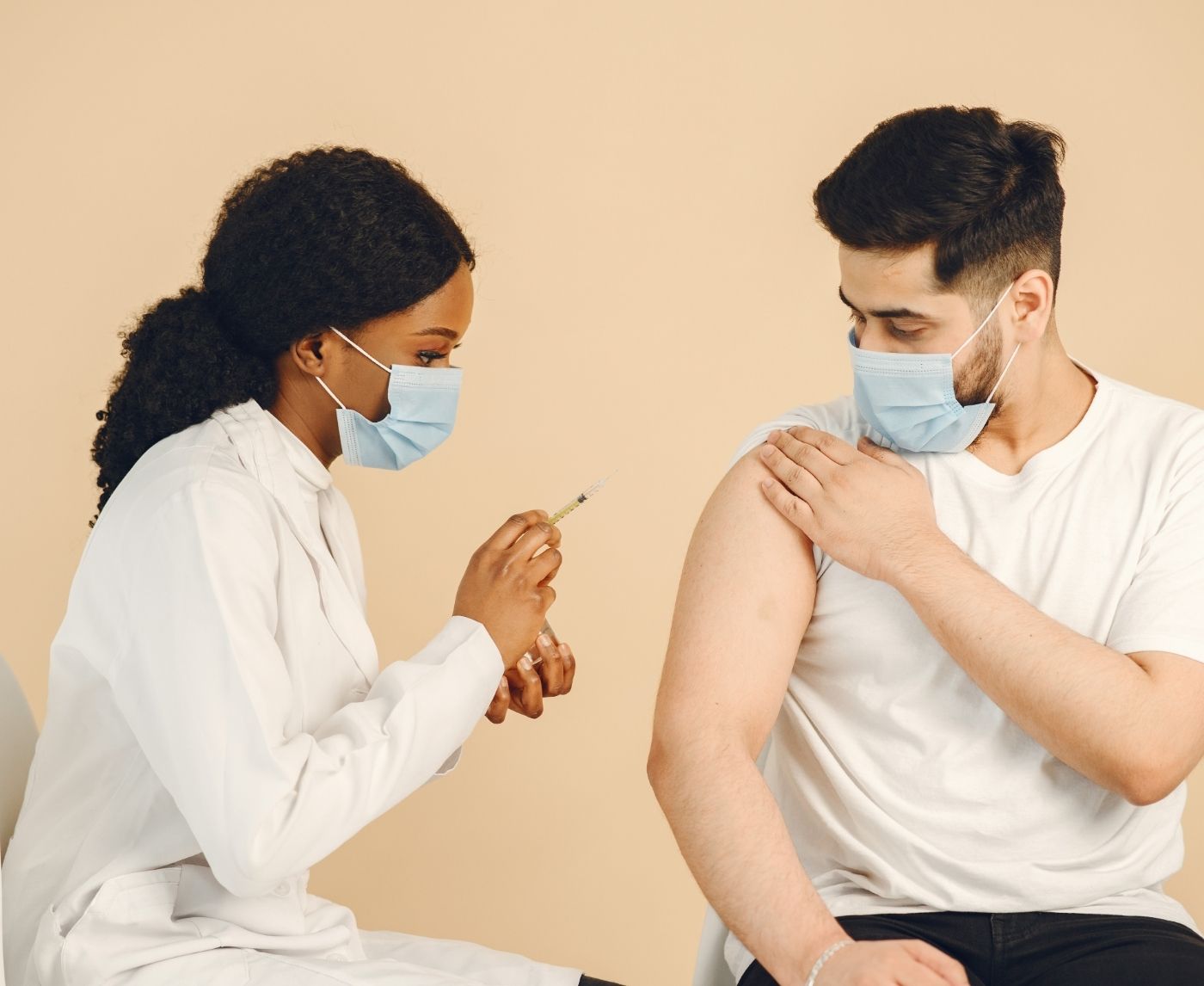Herpes Symptoms in Women: What Shows Up First (And What Often Doesn’t)
Quick Answer
The only approved STD vaccines protect against HPV and hepatitis A & B, with herpes and HIV vaccines still in development. Most people should be vaccinated in adolescence, but adults can often catch up depending on age, risk, and region.
Human Papillomavirus (HPV): The Most Preventable STD We Don’t Talk About Enough
HPV is the most common sexually transmitted infection on the planet. It’s so common, in fact, that the CDC estimates nearly everyone will contract at least one strain at some point in their life. While many types of HPV go away on their own, others can cause:
- Genital warts
- Cervical, anal, vulvar, vaginal, penile, and throat cancers
Most people never know they have it. There's often no symptom at all until serious complications arise. When symptoms do show, they tend to be:
- For low-risk types: Small, skin-colored warts in the genital or anal area (itchy but not painful)
- For high-risk types: No outward sign, only detectable through screening like Pap smears or HPV DNA testing
The good news? There's a powerful vaccine.
Vaccine: Gardasil 9
Approved for use in children as young as 9, and in adults up to age 45 in many countries. It protects against 9 strains, including the most cancer-causing ones and the two responsible for 90% of genital warts. It’s given in a 2- or 3-dose series depending on age.
Who should get it: Everyone, regardless of gender. Especially beneficial before sexual activity begins, but still valuable for sexually active adults under 45 who haven’t been fully vaccinated.

People are also looking for: How did people treat STDs before antibiotics?
Hepatitis B: A Silent but Dangerous Threat
Hepatitis B is a viral infection that targets the liver. It can be spread through blood, semen, vaginal fluids, and even saliva in rare cases. It’s one of the only STDs you can get through non-sexual contact too, like sharing razors or from mother to baby during childbirth.
Most adults clear the infection naturally, but some develop chronic hepatitis B, which can lead to:
- Liver scarring (cirrhosis)
- Liver failure
- Liver cancer
Symptoms (if they appear)
- Jaundice (yellowing of skin/eyes)
- Dark urine
- Extreme fatigue
- Abdominal pain (especially upper right side)
- Nausea and vomiting
Many people, especially in the early phase, feel nothing, and that’s what makes it dangerous.
Vaccine: Hepatitis B vaccine (often combined with Hep A)
This is one of the safest and most effective vaccines in the world. It's given in a 3-dose series, typically in infancy in most countries, but adults can and should get it too if they weren’t vaccinated as children.
Who should get it:
- All infants at birth
- Unvaccinated adults, especially those with new or multiple sexual partners
- Healthcare workers
- People who inject drugs
- People living with HIV
Fun fact: Some combo vaccines like Twinrix cover both Hepatitis A and B.
Order Now $49.00 $98.00 Check Your STD Status in Minutes
Test at Home with Remedium
Hepatitis B & Hepatitis C Test Kit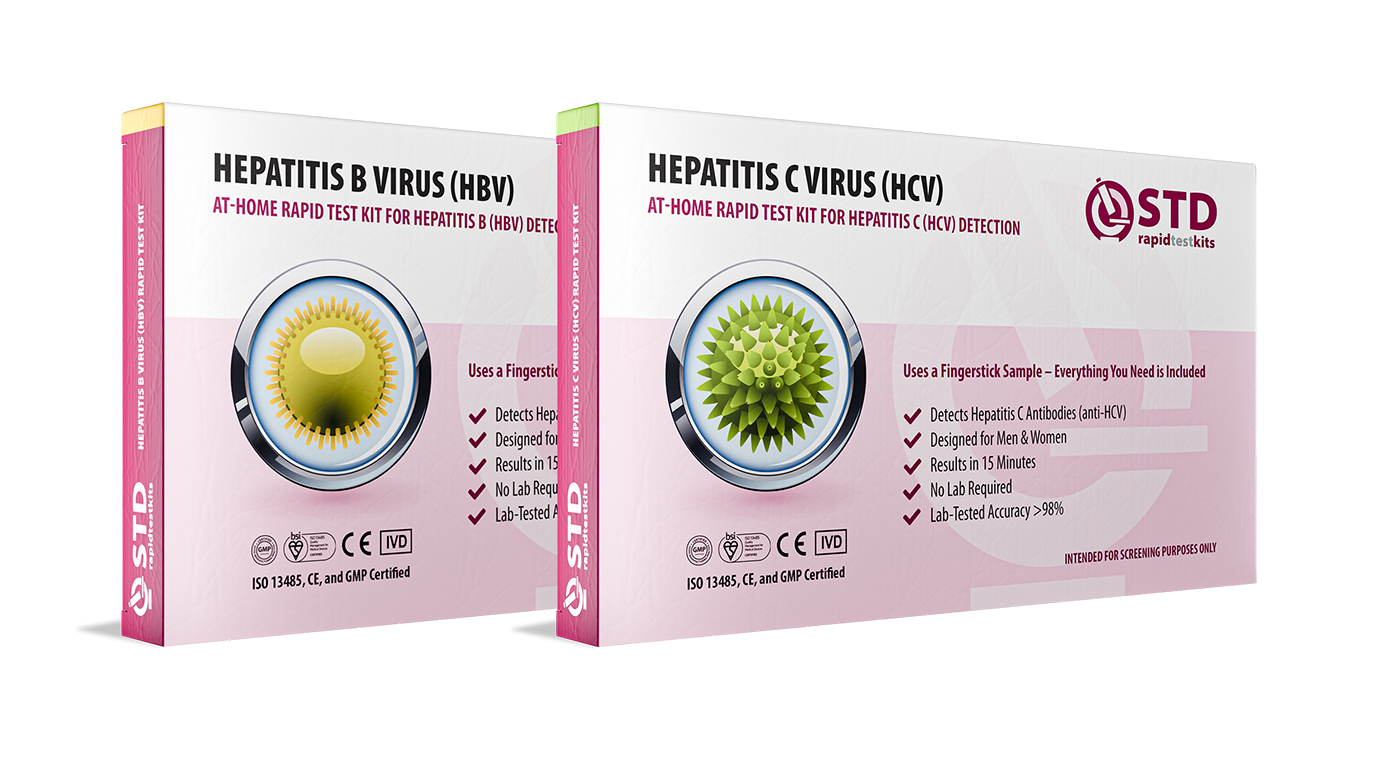




For all 2 tests
Hepatitis A: The Overlooked STD (Yes, Really)
Most people associate Hepatitis A with contaminated food or water, not sex. But this liver infection can absolutely be spread through sexual activity, especially oral-anal contact or any situation where microscopic amounts of fecal matter get transferred. Sounds gross? It is. But it’s also very real.
Unlike Hepatitis B, Hep A doesn’t usually become chronic, but the acute illness can be brutal and in some cases life-threatening.
Common symptoms include:
- Sudden fever
- Nausea and vomiting
- Fatigue
- Jaundice (yellow skin and eyes)
- Diarrhea and abdominal pain
- Dark urine and pale stools
The virus is especially risky for people with pre-existing liver conditions, older adults, or those who are immunocompromised.
Vaccine: Hepatitis A vaccine (often combined with Hep B)
Given in two doses, this vaccine offers lifelong protection in most cases. It’s incredibly effective and often overlooked in sexual health conversations, despite clear evidence of sexual transmission routes.
Who should get it:
- Men who have sex with men (MSM)
- People with chronic liver disease or HIV
- Anyone traveling to regions with poor sanitation
- Those engaging in oral-anal sexual activity or group sex
If you're not sure whether you were vaccinated, talk to your provider, or consider testing and catch-up vaccination.

People are also looking for: Can I pass hepatitis B to my baby through breastfeeding?
Herpes (HSV-1 & HSV-2): A Vaccine We’re Still Waiting For
More than 3.7 billion people worldwide carry Herpes Simplex Virus Type 1 (HSV-1), and hundreds of millions have HSV-2, the type commonly linked with genital herpes. Despite its mind-blowing prevalence, there's no approved vaccine yet.
Both types are spread through skin-to-skin contact, not just intercourse. That means kissing, oral sex, genital contact, or even asymptomatic shedding can lead to transmission. Condoms reduce risk but don’t eliminate it, since herpes can be spread from areas not covered.
Symptoms (if they occur):
- Painful blisters or sores on or near genitals, anus, or mouth
- Tingling, itching, or burning before an outbreak
- Flu-like symptoms during first infection (fever, swollen glands, body aches)
- Recurrences (some frequent, others rare)
Some people never get symptoms but can still transmit the virus. That’s part of why the stigma around herpes is so strong, people associate it with something “obvious,” but most carriers don’t know they have it.
Vaccine status:
Currently, several herpes vaccine candidates are in various stages of development:
- Theravax (HSV-2 therapeutic vaccine): Early trials show potential but not yet approved.
- mRNA-based herpes vaccines: Inspired by COVID vaccine success, these are entering clinical phases.
- HSV529 (NIH-funded): Once a top contender, now stalled in trial phases.
Who might get it in the future:
- People with frequent outbreaks
- Those with partners who are HSV-positive
- Healthcare workers or sex workers
- Anyone looking to reduce transmission and symptoms
Until we get a vaccine, managing herpes relies on antiviral meds, open partner communication, and in some cases, suppressive daily therapy.
Check Your STD Status in Minutes
Test at Home with RemediumGenital & Oral Herpes Test Kit
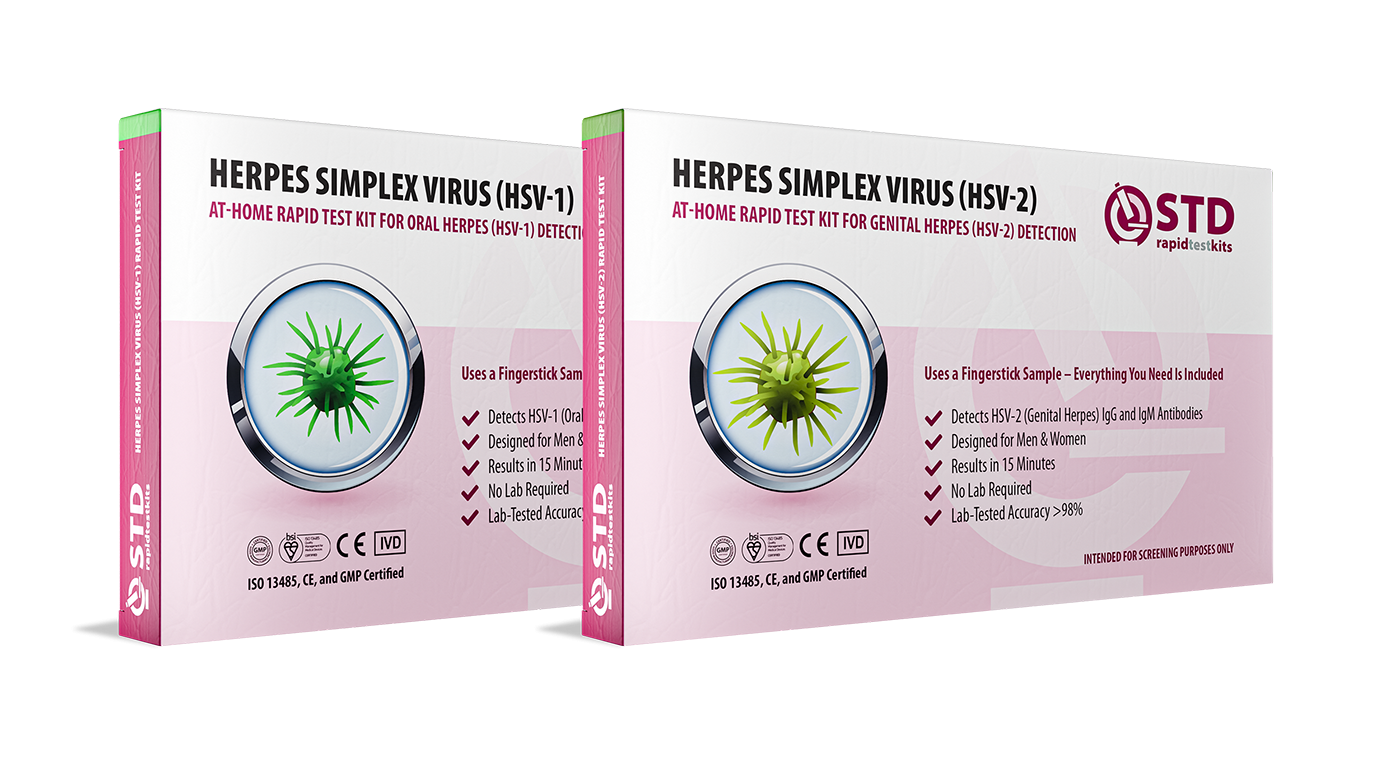
 For Men & Women
For Men & Women Results in Minutes
Results in Minutes No Lab Needed
No Lab Needed Private & Discreet
Private & DiscreetOrder Now $75.00 $98.00
For all 2 tests
HIV: The Vaccine Science Catching Up to a Global Crisis
HIV is the virus behind AIDS, a condition that once meant a death sentence and now, thanks to antiretroviral therapy, can be a manageable chronic illness for many. It spreads through blood, semen, vaginal fluids, rectal fluids, and breast milk. The vast majority of infections are sexual in nature.
Despite massive global investment, we still don’t have an HIV vaccine that’s publicly available. But the race is on, and for good reason.
Symptoms of acute HIV (2–4 weeks post-exposure):
- Fever
- Sore throat
- Rash
- Fatigue
- Swollen lymph nodes
- Night sweats
These early symptoms often mimic the flu and disappear. That’s why HIV can go unnoticed for years, slowly weakening the immune system. Without treatment, it progresses to AIDS, which includes weight loss, severe infections, and certain cancers.
Vaccine status:
- RV144 (Thai trial): First trial to show partial protection, about 31% effectiveness
- mRNA HIV vaccines: Moderna and NIH-backed candidates are in early human testing
- VRC01 (bNAb vaccine): Aimed at neutralizing a wide range of HIV strains, results mixed so far
Who might be first in line if an HIV vaccine becomes available:
- MSM and transgender individuals with high exposure risk
- Sex workers and people with multiple partners
- Partners of HIV-positive individuals
- People who use intravenous drugs
- Healthcare professionals
Until then, prevention relies on PrEP (pre-exposure prophylaxis), PEP (post-exposure prophylaxis), consistent condom use, and regular testing.
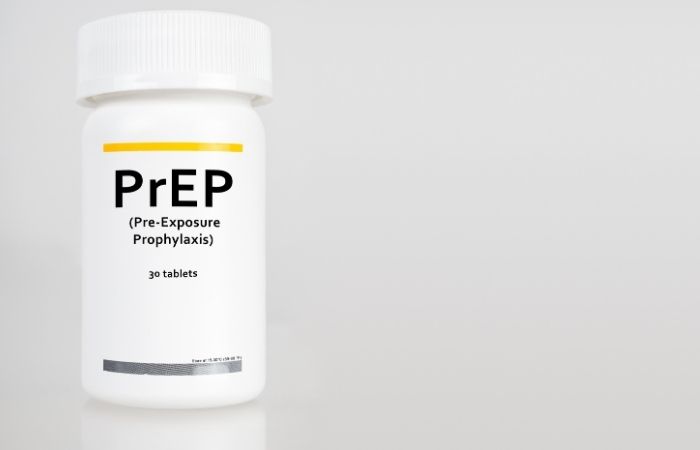
People are also looking for: Can HIV be cured?
What We Don’t Have Vaccines For (Yet)
While HPV, hepatitis A, and hepatitis B vaccines are lifesavers, the list of STDs without vaccines is still far too long. These include some of the most common and frustrating infections worldwide, ones that can be silent, recurring, or difficult to detect without regular testing.
Here’s what’s not covered by vaccines (yet):
- Chlamydia: The most reported bacterial STD globally. Usually asymptomatic, but when symptoms show, they include painful urination, unusual discharge, and in people with vaginas, pelvic pain or bleeding after sex. Long-term consequences can include infertility and pelvic inflammatory disease (PID). Vaccine candidates are being explored, but none are approved yet.
- Gonorrhea: Famous for being the “clap,” this infection has become more dangerous with antibiotic-resistant strains. It can infect the genitals, rectum, throat, or eyes. Symptoms include burning urination, discharge (often green or yellow), and pain during sex. Some infections remain silent. Research is ongoing, with one meningitis B vaccine showing partial protection.
- Trichomoniasis: A parasitic STD often overlooked in sexual health conversations. It can cause itching, burning, and discharge with a strong odor. Again, many are asymptomatic. No vaccine exists, and it's disproportionately underdiagnosed, especially in lower-resource settings.
- Syphilis: The comeback king. Syphilis has made a global resurgence, particularly among men who have sex with men and people living with HIV. It progresses in stages, from painless sores to full-body rashes to severe neurological and cardiovascular damage if untreated. No vaccine exists, but it's curable with antibiotics if caught early.
These infections may not have a vaccine, but they can be managed, treated, or cured, especially when caught early through routine testing. This is where STD Rapid Test Kits become crucial. Whether or not you’re vaccinated, testing remains an essential tool in your sexual health toolbox.
Check Your STD Status in Minutes
Test at Home with Remedium3-in-1 STD Test Kit
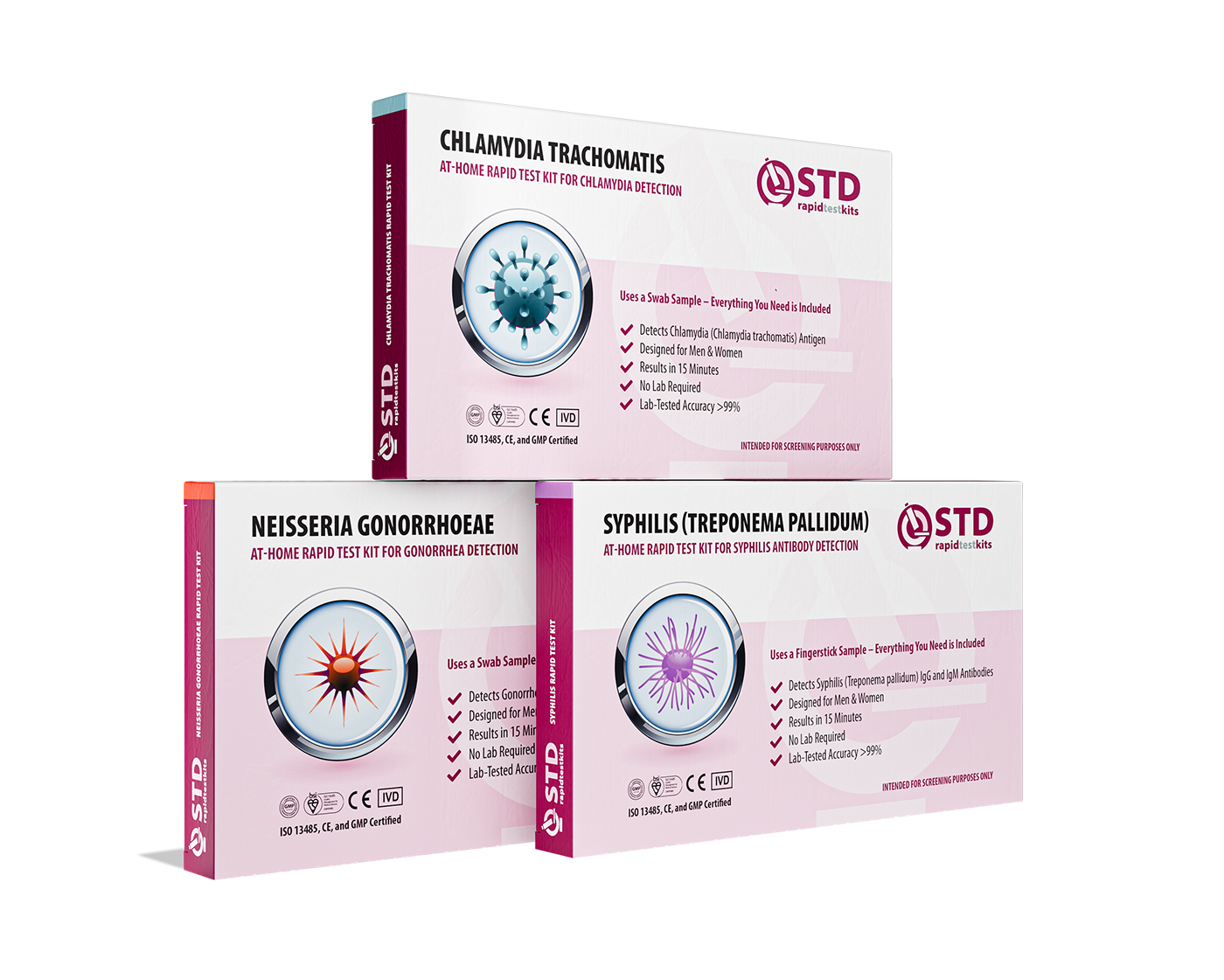
 For Men & Women
For Men & Women Results in Minutes
Results in Minutes No Lab Needed
No Lab Needed Private & Discreet
Private & DiscreetOrder Now $69.00 $147.00
For all 3 tests
FAQs
1. What STDs have vaccines available?
Currently, only HPV, Hepatitis A, and Hepatitis B have approved vaccines. All others, including herpes, HIV, chlamydia, gonorrhea, and syphilis, do not have vaccines yet, though some are in development.
2. Can adults still get the HPV vaccine?
Yes. Many countries now approve Gardasil 9 for adults up to age 45, especially if you haven’t been fully vaccinated or are at higher risk of exposure.
3. If I’ve had HPV or herpes, can I still get the vaccine?
- HPV: Yes, the vaccine can still protect against other strains you haven’t been exposed to.
- Herpes: No vaccine exists yet, but one may be available in the future.
4. Are there side effects to STD vaccines?
Most side effects are mild and short-lived: soreness at the injection site, fatigue, or mild fever. Serious reactions are extremely rare.
5. I got vaccinated for hepatitis B as a child, do I need a booster?
Usually no. The hepatitis B vaccine provides long-term immunity. If you're unsure, a simple blood test can check your immunity level.
6. Is it worth getting the hepatitis A vaccine if I’m already sexually active?
Yes. Especially if you engage in oral-anal sex, have multiple partners, or plan to travel to areas with poor sanitation. It’s effective and can prevent serious liver issues.
7. How effective are these STD vaccines?
- HPV (Gardasil 9): Over 90% effective against cancer-causing strains
- Hepatitis B: Up to 98% effective
- Hepatitis A: Around 95% effective after full dosing
8. Can I skip regular STD testing if I’m vaccinated?
No. Vaccines don’t protect against all STDs, and many infections (like chlamydia, gonorrhea, and syphilis) remain common and symptomless. Testing is still essential.
9. What if I missed the vaccines as a teen?
You can still catch up. Adults, especially those under 45, can often receive HPV and hepatitis vaccines. Talk to your healthcare provider or vaccination clinic.
10. How do I know if I’m fully vaccinated?
Check your immunization records, ask your healthcare provider, or get a titer test (for hepatitis) to confirm your immunity. If you’re unsure, it’s safe to get vaccinated again in most cases.
Vaccines + Testing = Real Protection
Vaccines are one of the greatest tools we have in modern sexual health, but they aren’t a magic shield. The diseases they prevent (HPV, Hepatitis A, Hepatitis B) are serious and widespread, and the fact that they’re preventable now is something worth celebrating and sharing. But vaccines only cover part of the picture.
What about the STDs with no vaccine? What about the things we catch during a foggy hookup, or the infections that show no symptoms at all? That’s where testing steps in.
Whether you're fully vaccinated, partially protected, or just learning about these options for the first time, make testing a habit, not a panic button. STD Rapid Test Kits offer confidential, at-home screening for chlamydia, gonorrhea, syphilis, HIV, and more. If you're not sure what you've been exposed to, a combo test like the Chlamydia + Gonorrhea Home Test is a smart, discreet place to start.
Sources
1. Vaccines That Can Prevent STIs – ASHA
2. STIs Fact Sheet: HPV & Hepatitis B Vaccines – WHO
3. STI Vaccine Overview: What Exists & What’s in Development – History of Vaccines






